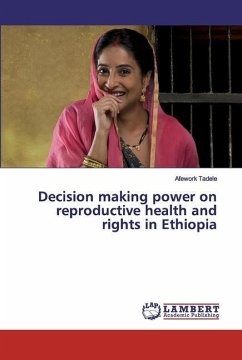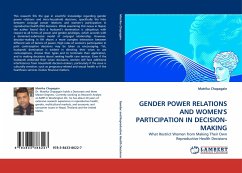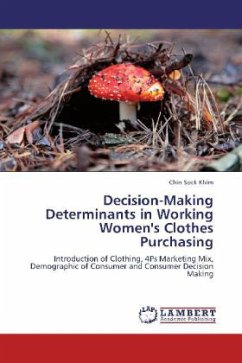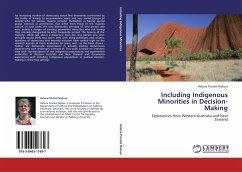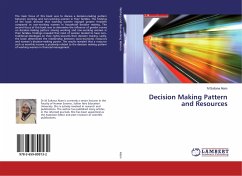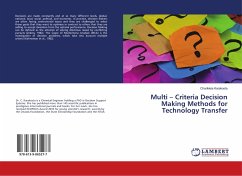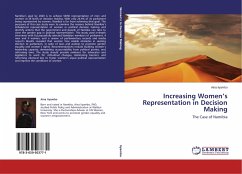
Increasing Women's Representation in Decision Making
The Case of Namibia
Versandkostenfrei!
Versandfertig in 6-10 Tagen
41,99 €
inkl. MwSt.

PAYBACK Punkte
21 °P sammeln!
Namibia's goal by 2020 is to achieve 50/50 representation of men and women at all levels of decision making. With only 24.4% of its parliament being represented by women, Namibia is far from achieving that goal. The purposes of this case study were to examine the reasons behind Namibia's imbalanced representation of women in political decision making and identify actions that the government and people of Namibia can take to close the gender gap in political representation. This study used in-depth interviews with 8 purposefully selected Namibian members of parliament, 4 men and 4 women, and a ...
Namibia's goal by 2020 is to achieve 50/50 representation of men and women at all levels of decision making. With only 24.4% of its parliament being represented by women, Namibia is far from achieving that goal. The purposes of this case study were to examine the reasons behind Namibia's imbalanced representation of women in political decision making and identify actions that the government and people of Namibia can take to close the gender gap in political representation. This study used in-depth interviews with 8 purposefully selected Namibian members of parliament, 4 men and 4 women, and a review of parliamentary records and media reports. Results revealed that women face sizable obstacles in seeking election to parliament, in spite of laws and policies to promote gender equality and women's rights. Recommendations include building women's leadership capacity, demanding accountability from political parties, and reforming laws. The study should provide evidence for advocates and legislators to work for attitudinal changes, eliminating barriers, and reforming electoral law to foster women's equal political representation and improve the conditions of women.



